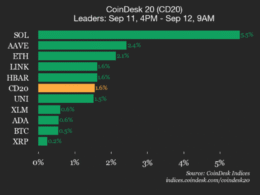Bitcoin’s price surge has renewed interest in creative ways to stack satoshis. If you’re willing to trade time (and tolerate ads), a growing number of free mobile and browser games now pay small amounts of real Bitcoin for completing levels, quests, or watching rewarded ads.
Below are accessible options and what to expect from each — from educational web games to idle phone apps. Most payouts are denominated in satoshis (1 BTC = 100,000,000 satoshis), and many titles funnel rewards through third‑party wallets or in‑app reward systems.
Botanix — Bitcoin 2100: Botanix launched mainnet on July 1 and released Bitcoin 2100, a browser-based, educational game that pays satoshis for completing quests. It’s designed to teach players about Bitcoin and the Botanix layer‑2 while offering real BTC rewards you can bridge and withdraw to your wallet.
Bitcoin Miner (iOS/Android): An idle simulation where you build a fictional mining empire. It’s lighthearted and easy to pick up; earnings accumulate over time but are small and the app uses frequent full‑screen video ads to fund payouts.
SpaceY (iOS/Android): Tap-to-mine asteroids and upgrade your ship. Unlike some rivals, SpaceY rewards optional ad views with boosters instead of forcing interruptions, and lets you cash out via a ZBD wallet.
Idle Mine! Earn Real Bitcoin: An idle resource‑management game that pays satoshis as you upgrade mines and workers. Ads are optional and provide meaningful in‑game boosts; this one’s useful for passive play while doing other tasks.
Puzzle & casual titles: If you prefer puzzles, games like Bitcoin Sudoku, solitaire variants, bubble shooters (Bitcoin Pop, Bitcoin Bay), and match/puzzle clones (Sweet Bitcoin, Ethereum Blast) all offer small BTC rewards — though ad loads and payout rates vary widely.
Other routes: ZBD’s app integrates rewarded ads across 100+ Android games, and location‑based apps like sMiles pay BTC for walking to points on a map via the Lightning Network.
Practical note: Earnings are modest. Consider time vs reward, app permissions, and wallet security before connecting accounts or bridging funds. Always use reputable wallets and avoid sharing private keys.
Source: Decrypt. Read the original coverage for full details.

